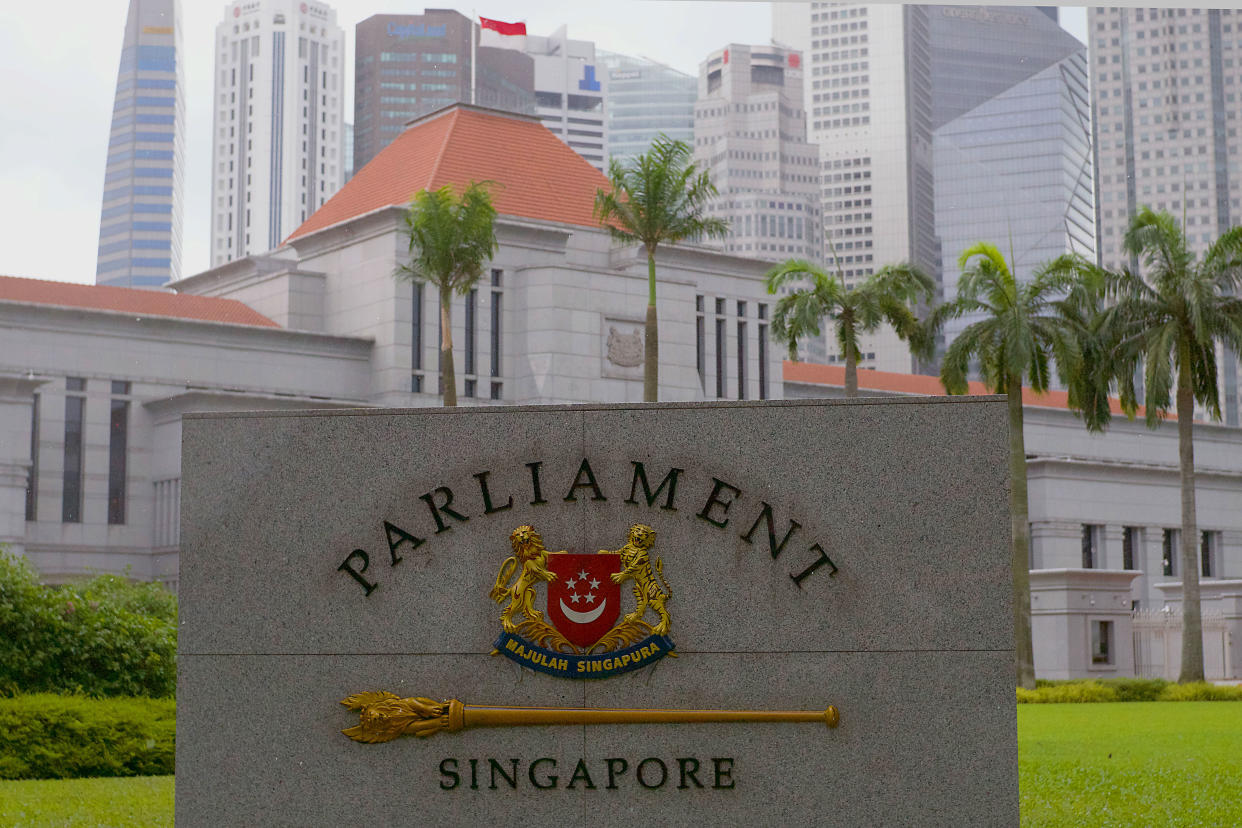COVID-19: MPs fast track Bill to allow Parliament to meet across multiple locations

SINGAPORE — Parliament has passed a bill to amend the Singapore Constitution and allow it to meet across two or more places appointed by the President, and in contemporaneous communication with each other, should the COVID-19 outbreak worsen.
In a move that saw unanimous bipartisan support on Tuesday (5 May), a new Article 64A, which creates a mechanism for Parliament to meet under continuity arrangements, will be inserted into the Constitution.
The mechanism will be active for six months after the Bill comes into force. In the future, it can be activated by Parliament for six months at a time if Members consider that it is impossible, unsafe or inexpedient for Parliament to meet in one place. The House will only require a simply majority to do so.
“This physical separation will enhance the survivability of Parliament as an institution. In the context of the COVID-19 situation, separating Members into cohorts, and limiting the physical contact between these cohorts, allows us to cut down the chance of infection spreading to all the MPs,” said Leader of the House Grace Fu, who called Parliament an essential service.
“In other words, the whole of the political leadership of the nation, government as well as opposition. If one cohort is infected, other cohorts can still carry on.”
The details of these continuity arrangements will be decided by the House or Speaker of Parliament Tan Chuan-jin. This could include allocating Members between the appointed places and the mode of communication between those places.
For now, Members will continue meeting in Parliament House with safe-distancing arrangements. Members are spread out within the chamber, with some seated at the public galleries.
Fu noted that the Constitutional provisions governing Parliament are currently premised on a physical meeting at one place that is appointed by the President. “In principle, we should make every effort to sit in this chamber.”
She added, “We hope there will be no need to activate these continuity arrangements. But we cannot be certain how events will unfold. Out of an abundance of caution, we should put the constitutional mechanism in place, if the need arises.”
Circuit breaker measures working
The Bill was passed on the same day that the Ministry of Health (MOH) reported a preliminary 632 new COVID-19 cases in Singapore as of Tuesday noon, bringing the total to 19,410 – the highest in Southeast Asia.
Fu, who is also Minister for Culture, Community and Youth, noted that the option of remote participation, which is being tried out by the House of Commons in the United Kingdom, was also considered but ultimately rejected.
“Singapore is a small country, and Members should be able to travel to alternative sites for Parliament. We also wanted Members to be physically and fully present to apply our minds together to the important business of the Parliament, even if we co-locate between several places.”
She added that there is no immediate need for continuity arrangements, given that the average number of new cases in the community and unlinked cases have decreased, compared against the week before the country went into a partial lockdown.
Stay in the know on-the-go: Join Yahoo Singapore's Telegram channel at http://t.me/YahooSingapore
Related stories
COVID-19: China donates 600,000 face masks to Singapore
COVID-19: Man who stabbed NParks officer to be charged with attempted murder
About 40 instances of COVID-19 'fake news' debunked since January: S Iswaran
COVID-19: Migrant workers were on MOM's radar since January – Josephine Teo



